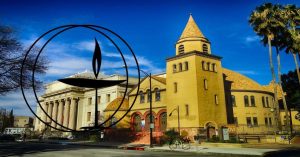In the realm of biblical counseling, there has been a growing discussion about the different types of counselors and how to define this field. It’s important to foster these conversations and develop a classification system that can shed light on the various approaches and perspectives within biblical counseling. This article aims to provide an overview of five types of biblical counselors and delve into their distinctive characteristics.
1. Expository Biblical Counselors
Often referred to as “Traditional Biblical Counselors,” Expository Biblical Counselors place a strong emphasis on exploring, explaining, and applying specific Bible passages in their counseling sessions. For them, counseling and discipleship are closely intertwined. They view holiness of character and emotional and relational health as synonymous. The primary concern of Expository Biblical Counselors is remaining faithful to the teachings of the Bible.
2. Shepherding Biblical Counselors
Shepherding Biblical Counselors share many similarities with Expository Biblical Counselors, but their primary focus is on caring for their church congregation rather than solely engaging in the biblical counseling movement. They prioritize faithfully tending to the needs of their church members and may perceive the debates within the counseling community as distractions from their pastoral responsibilities. The formalized approach of Professional Biblical Counselors may feel foreign to Shepherding Biblical Counselors, potentially raising suspicions about their methods.

3. Peer-Based Biblical Counselors
Peer-Based Biblical Counselors are mobilizers who are passionate about fostering care and support within the local church community. Rather than conducting counseling sessions in professional or pastoral settings, they prefer informal settings like living rooms and coffee shops. Their goal is to deepen friendships within the church and equip small group leaders to provide effective care. Peer-Based Biblical Counselors seek resources that mirror everyday conversations and are relatable to the individuals they are helping.
4. Biblical Counseling Explorers

Biblical Counseling Explorers, often known as “Progressive Biblical Counselors,” are individuals who have a deep love for biblical counseling but seek to push the boundaries of the field. They are constantly looking for new avenues to enhance theory and practice. These explorers ask themselves questions such as, “What areas have we not yet covered in our theory and practice? What needs are currently unaddressed? What new models of care and counseling can be developed?” They also engage in conversations with integrationist counselors and Christian psychologists to broaden their perspective.
5. Professional Biblical Counselors
Professional Biblical Counselors have a solid foundation in biblical counseling but operate within professional settings and may hold licensure as counselors. They accept the limitations imposed by ethical codes set by state licensing boards, as these limitations provide additional opportunities to serve their clients. However, biblical counselors working in a church setting may view these limitations as unnecessary obstacles or compromises. The distinction between Professional Biblical Counselors and other types of counselors can sometimes lead to differences in approach and perspective.

Finding Your Place in Biblical Counseling
The categorization of biblical counselors should not be seen as an attempt to label or pigeonhole individuals. It is natural for counselors to bridge or transition between different categories based on their experiences and personal calling. Each counselor brings their unique blend of skills and perspectives to the field. Reflecting on your passion and calling can help you identify the type of biblical counselor you are and where you fit within the broader landscape.
Four Core Values of Biblical Counseling
While there are different types of biblical counselors, they share four core values that underpin their approach to counseling. These values serve as foundational principles for those who identify as biblical counselors.
1. Primacy and Finality of Scripture
Biblical counselors believe that Scripture holds the primary and final authority in addressing the issues they encounter. They prioritize exploring biblical teachings and applying them to their counseling sessions. While some biblical counselors may incorporate evidence-based practices, they never lose sight of the fact that Scripture should have the first and last word on any subject it addresses.
2. Necessity of the Gospel
The gospel serves as the catalyst for transformative change in the lives of individuals seeking counseling. Biblical counselors acknowledge that true and lasting change is rooted in the gospel message. While they recognize that temporal improvements in cognitive, emotional, or relational functioning can occur apart from the gospel, they understand that only the gospel can address the ultimate need of reconciliation with God.
3. Balanced View of Sin and Suffering
Biblical counselors recognize that sin and suffering are intertwined, both stemming from the consequences of Adam and Eve’s original sin in the Garden of Eden. They understand that the gospel provides forgiveness and freedom from sin, as well as comfort and meaning in the midst of suffering. Biblical counselors strive to address both sin and suffering in their counseling sessions, ensuring that neither aspect overshadows the needs of the individual seeking help.
4. Centrality of the Local Church

Biblical counselors place great importance on the role of the local church in the redemptive process. Those working within the church setting fulfill their purpose through preaching, teaching, equipping, and counseling. Biblical counselors in private practice provide a space for believers to address their challenges and engage more fully in their Christian community. Recognizing that God designed humans for community, biblical counselors encourage active participation in the local church as a vital component of a healthy and flourishing life.
Conclusion
The diversity within the field of biblical counseling is both fascinating and necessary. By understanding the different types of biblical counselors and the core values they share, we can appreciate the richness and variety of approaches in this field. Whether you identify as an Expository Biblical Counselor, Shepherding Biblical Counselor, Peer-Based Biblical Counselor, Biblical Counseling Explorer, or Professional Biblical Counselor, your unique perspective and calling contribute to the broader tapestry of biblical counseling. Embracing these differences and upholding the core values of biblical counseling will enable us to better serve those seeking guidance and support on their spiritual journey.




No comments! Be the first commenter?